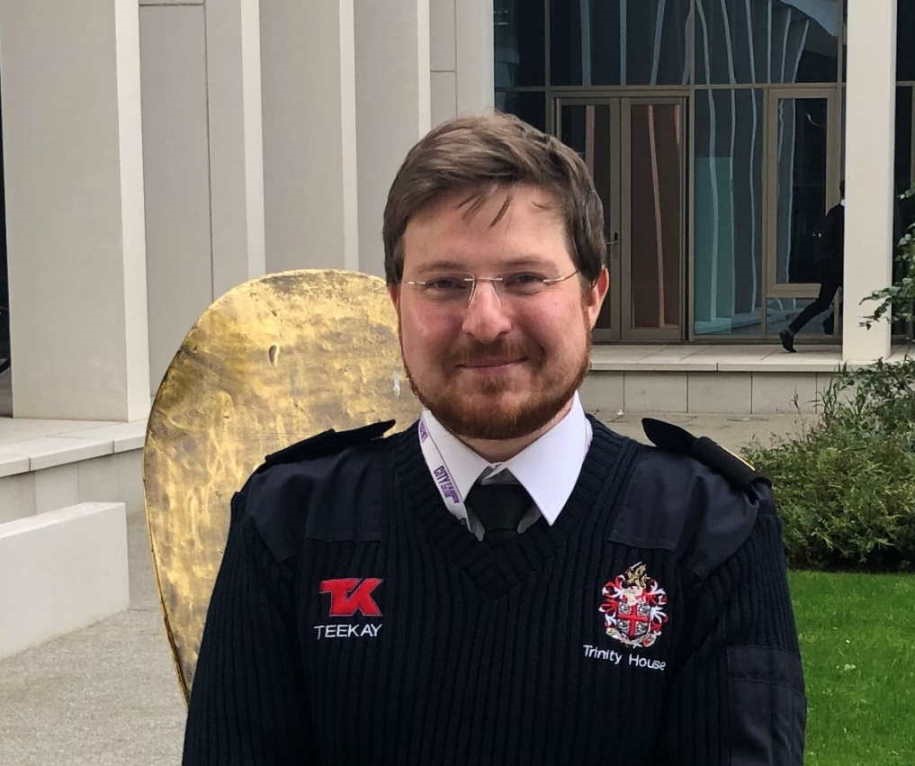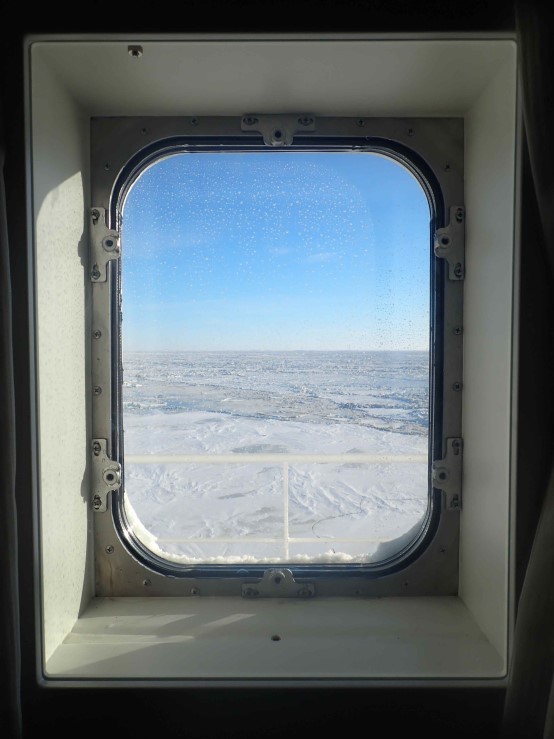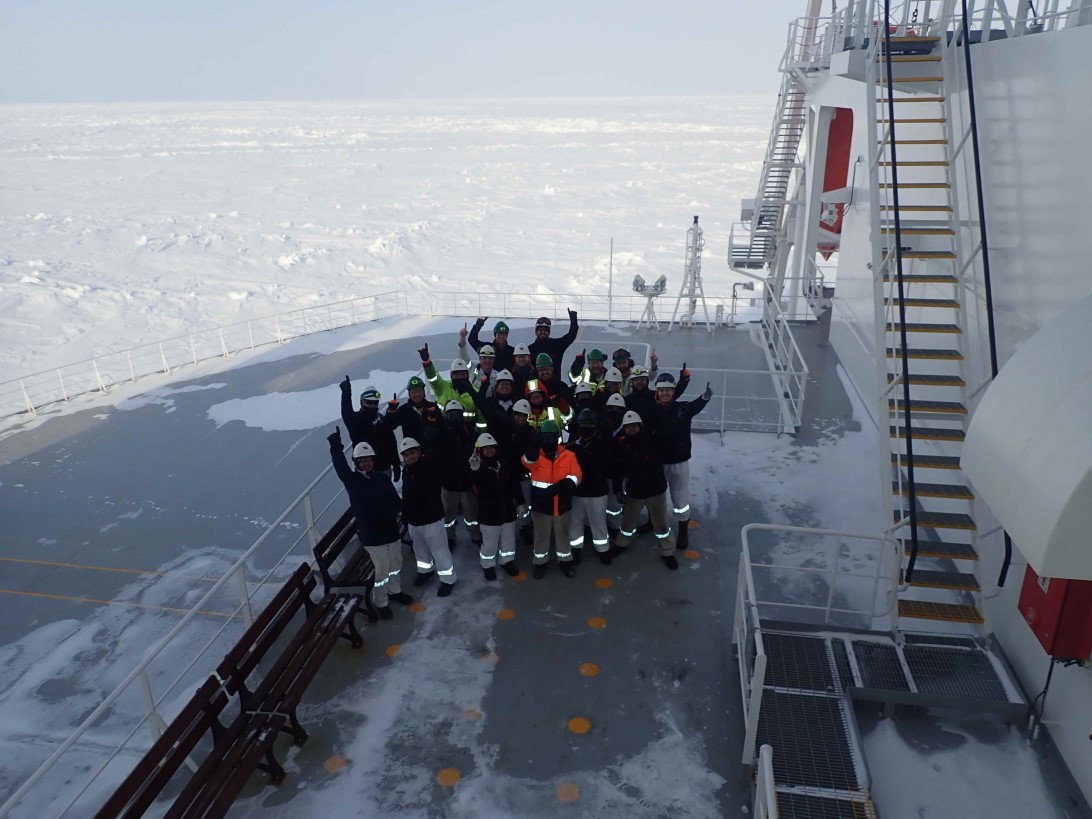November 24, 2020
Steve Walls is an Engine Cadet currently studying at the City of Glasgow College in Scotland. He is the first of the college’s graduate conversion program to sail with Teekay. This new cadet program is designed to take individuals with theoretical and analytical knowledge developed through university study and quickly build the practical focused skills that are required in an Engineering Officer on board a ship. This is Steve’s account of his first voyage aboard a Teekay ship.
Having spent the last few years of my career as a Project Engineer, it was a daunting challenge to leave a shore-based role servicing pressure control systems and step up to the gangway of Nikolay Yevgenov in Rotterdam after a very fast-paced 6 months at the college.
Heading onboard as a first-trip cadet with a pristine (and quite empty) discharge book, during the height of 2020’s global pandemic, I expected it was to be an unusual experience. The crew had been through a challenging period already and relief was uncertain, so stepping into this was pretty intimidating. My thanks to 3/O Shaun, 2AE Ryan and Matthew for the buddy system that pairs cadets up with officers travelling out from the same region. The system gives those with less sea experience a familiar face in those first few days. For me, it was a big relief!
Heading onboard as a first-trip cadet during the height of 2020’s global pandemic, I expected it was to be an unusual experience.
For those unfamiliar with the small group operating on the North-ern Sea Route between Europe-Russia-Asia, Nikolay Yevgenov is one of the company’s six 299m long ARC7 vessels on long term-charter supporting the YAMAL project, Russia’s flagship LNG operation on the Yamal Peninsula. Specifically built for the harsh environment encountered at 71 degrees latitude and above. It might seem maddening to most in the Teekay fleet to find steam radiators, recirculation and air intake heating in the engine room but unusual ship features are the normal when out-side temperatures can drop to -40°C and carving through ice sheets stern-first is to be expected.
The distinctive ice-bow, covered bridge wings and dual-wheelhouses make these vessels stand out in the crowd at anchor and, as a bit of an engineering geek, the engine rooms of these new ships had me feeling like a child in a candy store at times. It’s easy to get lost following the level of automation, with the large servers dominating the width of Nikolay’s Engine Control Room and the many sensors tied into all facets of the ship. I expect my fellow ETO (Electro Technical Officer) cadets coming out of Glasgow will be putting plenty of their knowledge to work should they have the chance to sail with the crew here. I can say that having experience with telemetry and control systems is a big advantage even as an engine cadet and goes a long way towards getting to grips with the vessel.
After a quick familiarization, it was straight into every engineer’s favourite pastime, system tracing! The first weeks onboard seem a very short period looking back, just beginning to learn the individual aspects of the engine room. However, between Chief Engineer Edward and First Engineer David, I was definitely driven to pull these aspects together and start building a greater image of how the whole vessel comes together, rather than being a group of random machinery. Nikolay is relying on everything and every-one there to keep on sailing safely. At no other time did this become more apparent than during our steam shutdown and injector overhauls, incredibly busy periods where the prior planning and long hours of all involved were key to ensuring a smooth operation.
For any cadet sailing with Teekay, they can be sure that at no point will a quiet trip be on the table.
For any cadet sailing with Teekay, they can be sure that at no point will a quiet trip be on the table. The officers and crew will push you to be learning more and giving excellent guidance on where to take your studies. This was made clear even during routine drills, where some organizations might offer token muster and headcount, I and my fellow cadets were always challenged. Nothing builds a sense of the responsibility and passion required to work at sea quite like turning up to muster and being told to suit up in breathing apparatus on one day or form the medical party with no warning. I can say these experiences helped when suddenly asked to give a presentation on the use of emergency escape breathing devices in the mess or support a mock casualty recovery from the engine room.
The exceptional times during which I was aboard demanded an exceptional effort when tackling the harsh elements and I can say the people I was fortunate to learn from and my time onboard Nikolay Yevgenov will stick in my memory. I hope to have the chance to sail with the fleet again as a qualified officer in the coming years.



